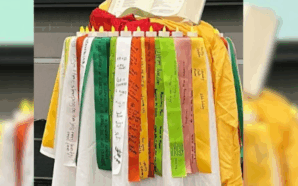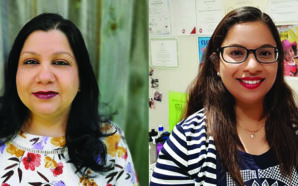Homily for the Fourth Sunday of Advent
Readings: Isaiah 7:10-14; Psalm 23(24):1-6; Romans 1:1-7; Matthew 1:18-24
18 December 2022
In so far as Joseph and Mary were typical of young people their age in Israel in their time, they would have been betrothed when Joseph was about 13 years old, and Mary 12. Mary would have been living with her parents. Joseph would have been a regular visitor. They would have planned a marriage ceremony at least a year later, when Mary would then have moved in with Joseph or into the house of Joseph’s parents.
LISTEN: https://soundcloud.com/frank-brennan-6/homily-181222
In the meantime, Mary finds that she is pregnant. Scripture scholar Daniel Harrington tells us: “Mary’s pregnancy at first sight appears to be the case outlined in Deuteronomy 22:23–27, which involves a betrothed virgin who had sexual relations with either a man in the city or a man in the country. In the first case, the penalty is death for both parties, in the second case only for the man. The reason for the difference concerns the woman’s ability to cry out and stop an act of rape; in the city she would be heard but not in the country.”[1]
But Joseph has a dream which is the literary device used to reveal God’s will. Joseph follows the dream. He does not expose Mary to shame and the full force of the law. He does not even divorce her quietly and informally. He decides to take her into his home. “For it is through the Holy Spirit that this child has been conceived in her. She will bear a son and you are to name him Jesus, because he will save his people from their sins.”
If Joseph had followed the rules and the social mores, he would have abandoned Mary and her son. Instead, he follows the promptings of the Holy Spirit, the same Spirit that allowed Mary to conceive a son.
During the week, I was very privileged to participate in an international conference in Rome on Religious Freedom and Catholic schools. I find that at such conferences there can be a tendency for people to feel that they are part of a church under siege in a secular world. Some can then be quite prescriptive about who should be able to participate in the Catholic enterprise and on what conditions. Our message of hope for Advent is that Joseph comes to understand that Mary “will bear a son and you are to name him Jesus, because he will save his people from their sins.” Jesus came into a secular world with his parents deciding not to follow or even be cowered by the rules and mores of that secular world or of their religious milieu. Joseph’s counter-cultural decision to take Mary in is the launchpad for the good news to come.
Those of us looking for bold signs of this good news – seeking a sign as deep as the netherworld, or high as the sky, as the Lord says to Ahaz in today’s reading from Isaiah – can be disappointed. But then again, we can revise our hopes and expectations. The Advent message of hope is that we will be given all that we need to run on at Christmas, namely that “the virgin shall conceive, and bear a son, and shall name him Emmanuel”.
If that’s the only hope we need, we can then embrace our role in church and society, fortified that the same Holy Spirit through whom Mary conceived and through whom Joseph came to understand is empowering us to bring good news to the world.
At our conference this week, one of the presenters recalled a great line from G K Chesterton’s Paradoxes of Christianity: “And the more I considered Christianity the more I found that while it had established a rule and order, the chief aim of that order was to give room for good things to run wild.”
Good things running wild – now that is a great image not just for Catholic educators, but for all of us wanting to give vent to our Advent hope.
Rather than simply viewing secularisation as a negative process working often in tandem with the state policy of secularism, could we not see a case for a benign secularisation which acknowledges the competence of discrete disciplines and areas of learning spared the oversight of religious authorities. This benign, welcome and inevitable process is to be contrasted with a negative state policy of secularism which is aimed at driving the Church from the public square and denying the competence of religious authorities and people of faith to participate in all disciplines and learnings.
It might be timely for us to revisit Pope Benedict’s splendid address at Westminster when he told British law and policy makers:
“[T]he world of reason and the world of faith – the world of secular rationality and the world of religious belief – need one another and should not be afraid to enter into a profound and ongoing dialogue, for the good of our civilization.
“Religion, in other words, is not a problem for legislators to solve, but a vital contributor to the national conversation. In this light, I cannot but voice my concern at the increasing marginalization of religion, particularly of Christianity, that is taking place in some quarters, even in nations which place a great emphasis on tolerance. There are those who would advocate that the voice of religion be silenced, or at least relegated to the purely private sphere.”[2]
All of us inhabit two worlds – a world of secular rationality and a world of religious belief. It’s not as if one world is all bad and the other all good. Grace is at work even in our world of secular rationality. That’s our Advent hope. I am pleased not to live in a theocracy. I like Rowan Williams’ idea that each of us has multiple affiliations. In my case, I am a Catholic priest; but I am also an Australian citizen. I am very pleased that there are some aspects of my life beyond the reach of the pope, even if the pope be a Jesuit like me! Even if we can enjoy the fruit of the Church having controlled and fostered the arts in Rome 500 years ago, none of us would espouse such controlling papal patronage today.
Earlier this year, the Congregation for Catholic Education issued its Instruction The identity of the Catholic school for a Culture of Dialogue. Of course, the Instruction leaves us in no doubt about the overseeing role of the local bishop in relation to Catholic schools in his diocese. But a school’s Catholic identity can be enhanced and sustained only if there be a commitment to a culture of dialogue.
The Instruction states: “The echo of this attitude resounds already in the first encyclical of John XXIII, where it is stated that ‘The Catholic Church […] leaves many questions open to […] discussion’. In this sense, whether a case necessarily requires direct intervention on the part of the church authority must make the object of careful consideration, since ‘the common saying, expressed in various ways and attributed to various authors, must be recalled with approval: ‘in essentials, unity; in doubtful matters, liberty; in all things, charity’.”[3]
All of us involved in Catholic education know that in the past issues such as sexuality and gender were viewed as essentials demanding unity. They were often classed amongst the so-called neuralgic or pre-eminent Catholic issues. Nowadays, if we are attentive to our students, parents, staff, and the science, we know that some of these questions are more appropriately classed as doubtful matters requiring liberty. And no matter what disagreement amongst us about what’s essential, and what’s doubtful, we are called to be charitable with each other in all things.
As we contemplate the doubts, uncertainties and renewed commitment that confronted Joseph and Mary in the weeks before the first Christmas, let’s espouse an appropriate regime of law and order in our secular world and in our Church “to give room for good things to run wild”. Let’s pray for the faith that the birth of the child of Mary and Joseph is good not just in the world of religious belief but also in the world of secular rationality. Our Advent hope is that both worlds “need one another and should not be afraid to enter into a profound and ongoing dialogue, for the good of our civilization”.
Fr Frank Brennan SJ is the Rector of Newman College, Melbourne, and the former CEO of Catholic Social Services Australia (CSSA). He was appointed a peritus at the Fifth Plenary Council of the Australian Catholic Church.
[1] Daniel J. Harrington, The Gospel of Matthew, Sacra Pagina Series (Collegeville, MN: Liturgical Press, 2007), pp. 36–37.
[2] Pope Benedict XVI, Address at Westminster Hall, 17 September 2010, available at https://www.vatican.va/content/benedict-xvi/en/speeches/2010/september/documents/hf_ben-xvi_spe_20100917_societa-civile.html
[3] Congregation for Catholic Education, The identity of the Catholic school for a Culture of Dialogue, 2022, para 85 quoting Pope John XXIII, Ad Petri Cathedram, available at https://www.vatican.va/roman_curia/congregations/ccatheduc/documents/rc_con_ccatheduc_doc_20220125_istruzione-identita-scuola-cattolica_en.html








